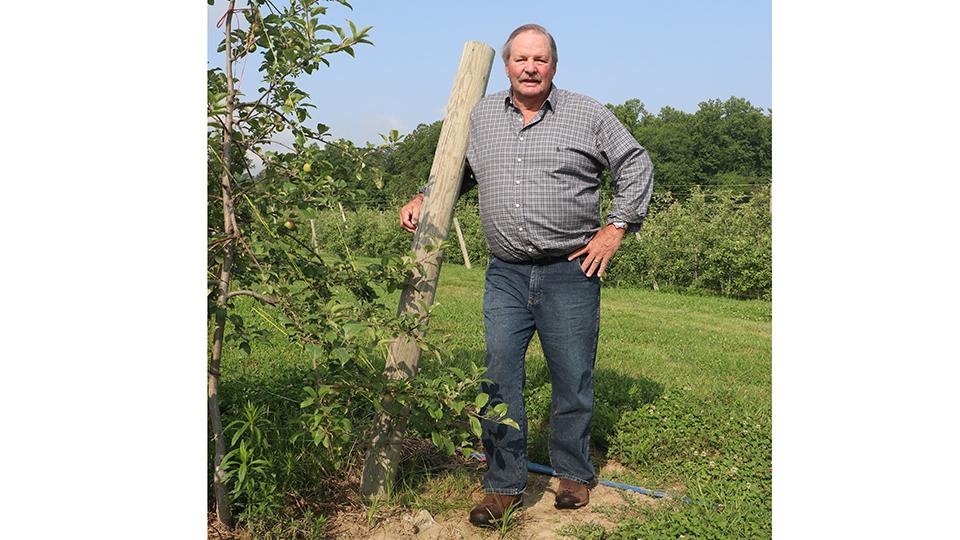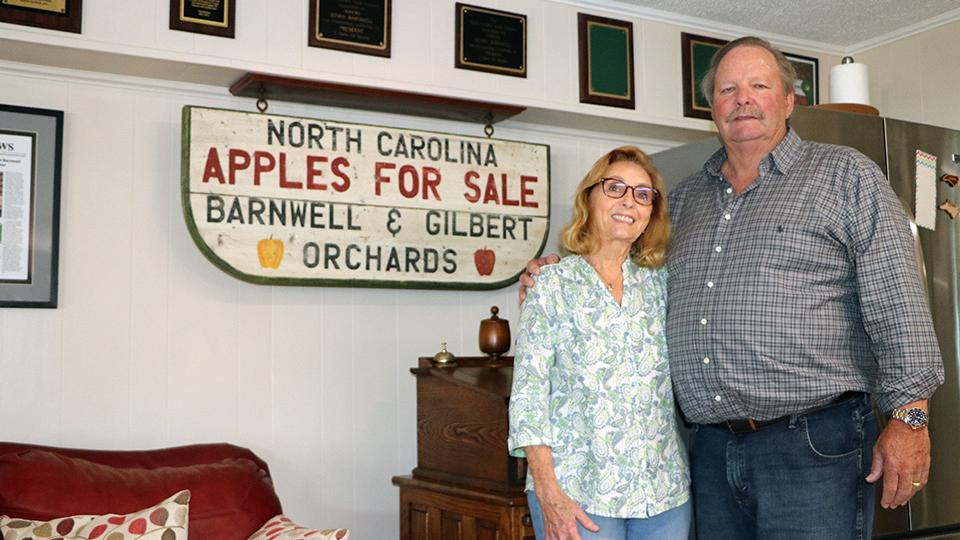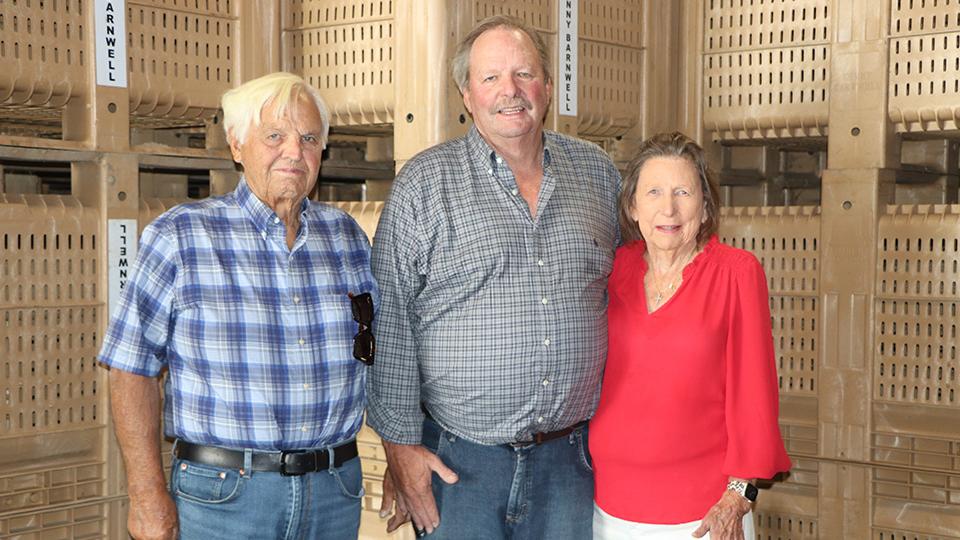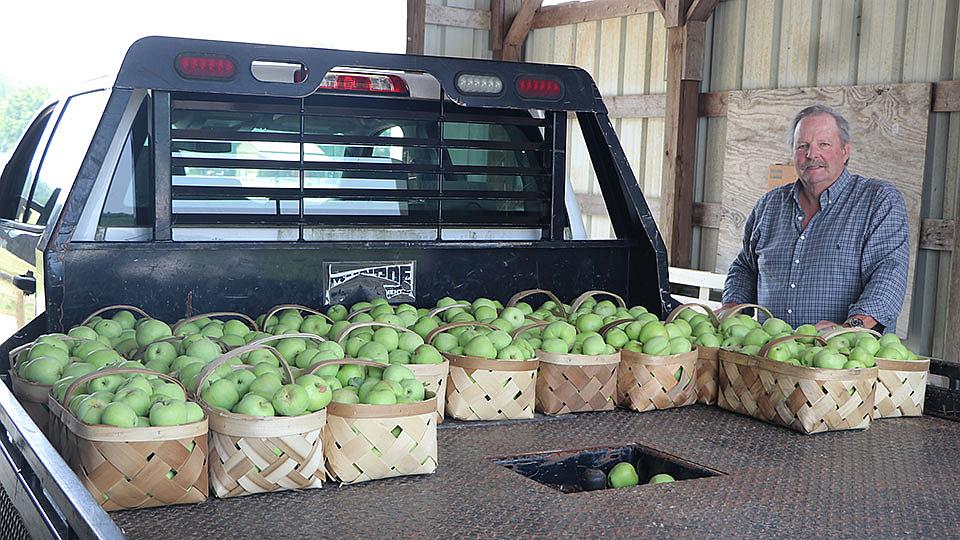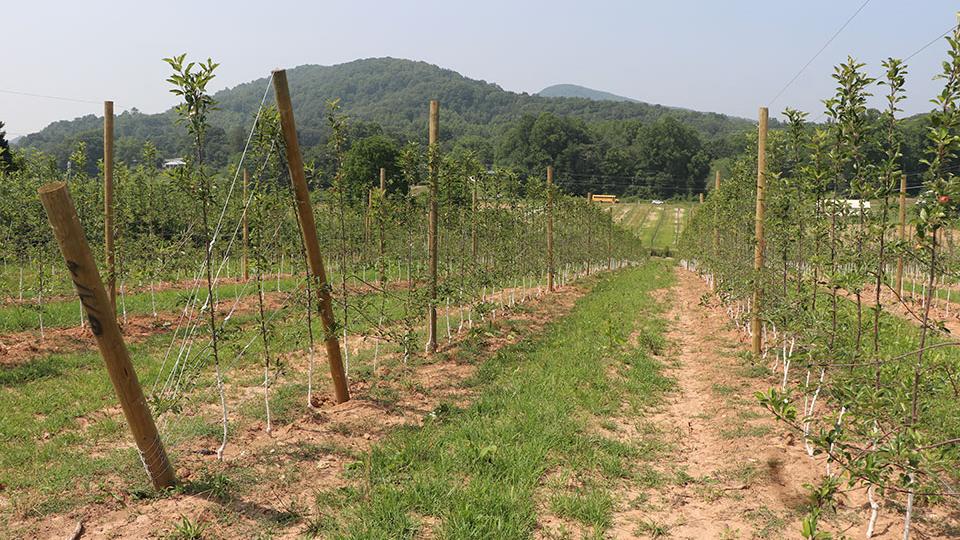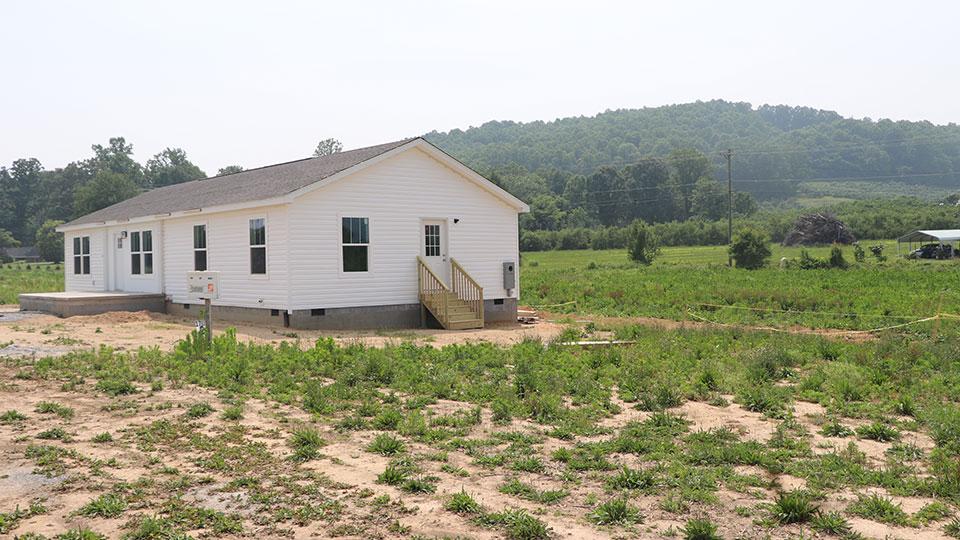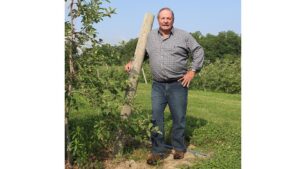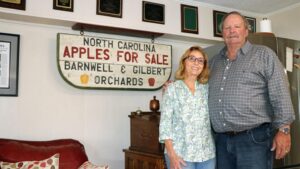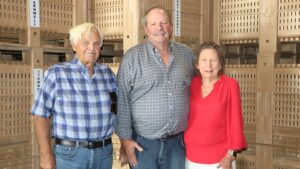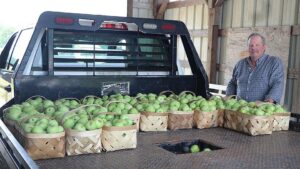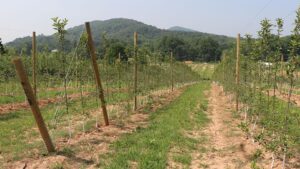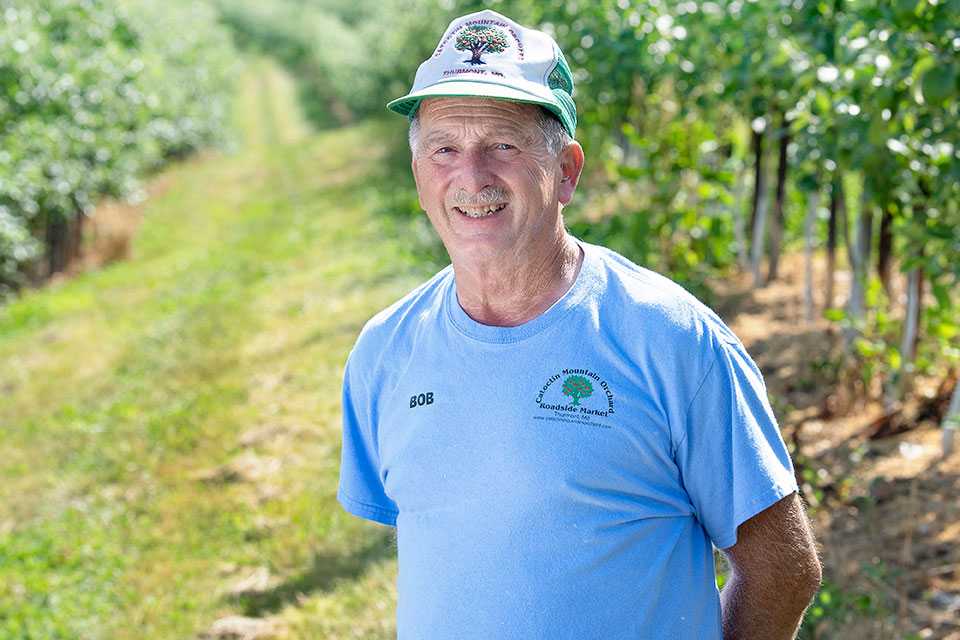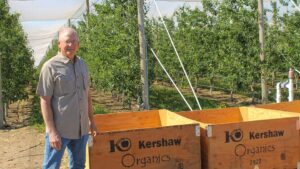The Rest of the Story on This Year’s Apple Grower of the Year Winner
Detailing the talents of an Apple Grower of the Year is never easy, especially when one has only 1,500 words to work with. They are inherently multi-dimensional individuals. Such is the case with Kenny Barnwell, the latest recipient of the award.
Barnwell’s story revolves around his advocacy of the industry. He is likely one of the most connected farmers in the U.S. But he’s also an apple grower by nature. And a pretty good one at that. While I enjoyed hearing about his escapades on Capitol Hill, I just as much appreciated his thoughts on how he grows apples in the hills of western North Carolina. Here are a few of his thoughts.
Crop Protection: Barnwell uses less than 10% of the active ingredients than he had 30 years ago. This includes organophosphates — “very, very hard chemicals,” he says — that were prevalent in the early 1980s.
“They kill everything. If you get more than four or five drops on you in certain areas of your body, they can kill you,” he says. “I woke up a lot of nights soaking wet, sweating that stuff out of me when we had been spraying.”
Now, Barnwell relies on target-specific chemistry, specifically an insect growth regulator. “The only thing it will kill is lepidopterans — oriental fruit moth, codling moth, and tufted apple bud moth,” Barnwell says. “I don’t hurt the beneficials that help me control mites naturally. Any other animals, your bees, it’s not going to bother them.”
High-Density Systems: Of his 150 total acres, Barnwell uses trellises on each of two 60-acre plots. “A lot of the other (30 acres) are planted 5 by 15 [feet], which was considered high-density back then,” he says.
Barnwell ran with ‘Rome’ processing apples more than 25 years ago. “‘Romes’ are easy — you prune ’em, fertilize ’em, spray ’em, and pick ’em,” Barnwell says.
Unfortunately, the company that was partnering with Barnwell experienced a change in ownership.
“The first year I made a little, the next year I broke even, and the year after that I lost money. I told my wife that if I’m going to go broke, I’m going to go broke on my terms,” Barnwell says.
So, he pushed up 75,000 bushels of processed apples and replaced them with ‘Gala’, ‘Pink Lady’, and ‘Fuji’. “And they did good for me. That was the best thing I could have ever done,” Barnwell says.
Of course, what comes around goes around. “Now, I’m pushing those same ‘Gala’ and ‘Fuji’ up and planting a redder strain of ‘Gala’ and ‘Fuji’,” he says. “They want more color. The consumer buys with their eyes.”





